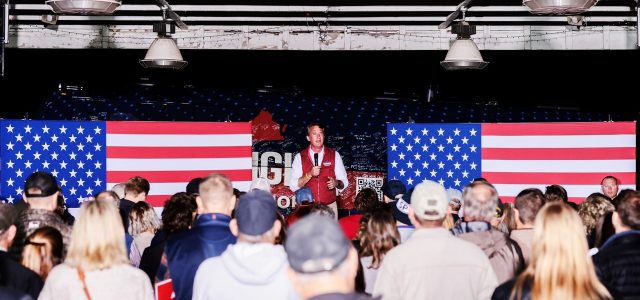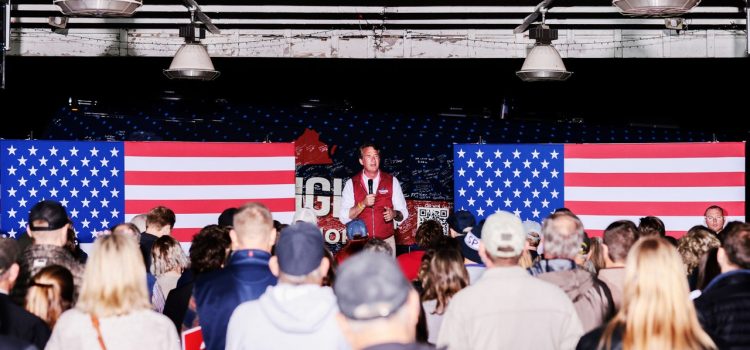


“While I see and understand the power of social media and how you can communicate messages and engage in some way, shape, or form, those platforms aren’t designed for sort of a personalized interaction with the voter,” Mike Baumwoll tells WIRED. “It was specifically designed to allow and empower voters and give them a microphone to ask a question.”
When a politician replies to a question that was upvoted on Rep’d, their response is blasted to all the other users who voted. The campaign can then send that response out to all their other platforms, such as newsletters, Twitter, Facebook, or press releases.
This election cycle, the company’s tech is being deployed in campaigns in Michigan, Wyoming, Austin, and Colorado. Before becoming director of communications and digital for Colorado Democrats, Megan Burn did marketing for wellness, beauty, and fashion brands in Brooklyn and Los Angeles. Political marketing lags a few seasons behind her previous digs, shall we say.
Rep’d has been a bright spot to her though. She likens it to being one-third Cameo, one-third Facebook, and one-third Reddit. Campaigns that adopt the technology—which can be as simple as including an “Ask” button on their candidate’s website—get a direct link to voters that other campaigns don’t have.
“That feeling of inclusivity and being in the in crowd, I mean, that’s clout. That’s how you get people to buy in and love your brand,” Burn says. “My two marketing goals are to educate people and empower them to feel confident to ask their elected officials questions, right? Hold people accountable and make their voices heard, because I feel so many people are disillusioned with the system.”
The erosion of Americans’ trust goes deeper than government institutions. These days, the media has also lost the public’s trust. A full 38 percent of Americans now tell Gallup they have “no faith” in the media. By removing journalists from the conversation and connecting voters directly with their own politicians, Rep’d hopes that faith will slowly be renewed in politics.
“There’s no possible distortion of a politician’s message because they are telling it to you directly and responding to your question directly,” says Mark Friese, the vice president of business development at Rep’d. “So we think it kind of shortens the distance between the politician and the voter, or the politician and the constituent. And we think it can definitely play a bigger role in increasing trust and transparency.”
Trust and transparency are lofty goals, especially when many voters don’t even know what’s on their ballot or where to vote. That’s where services like BallotReady come in.
BallotReady has you covered, which you may have heard on Spotify, Snapchat, and even Tinder—all brands they’ve partnered with to get their nonpartisan message out. It alerts you to vote, and even directs users to the nearest polling place.
Importantly, in this first election since the overturning of Roe v. Wade, they also help voters sift through the quagmire of down-ticket state and local races—for comptrollers, commissioners—which this year includes judges who may decide your local reproductive rights.
